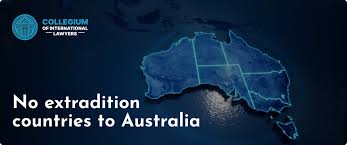
Strengthening the Grip: Interpol’s Financial Operations Control
In recent years, the global landscape of financial transactions has expanded exponentially, driven by advances in technology and the emergence of new financial instruments. This evolution has not only provided opportunities for legitimate economic growth but has also created a fertile ground for financial crime. Recognizing the growing challenge of international financial crimes, Interpol financial operations control aims to strengthen enforcement and oversight mechanisms that combat financial malfeasance on a global scale.
The Rise of Financial Crimes
Financial crimes, encompassing money laundering, fraud, corruption, and financing of terrorism, present significant challenges to countries worldwide. According to estimates from the United Nations, the annual cost of money laundering alone exceeds $1 trillion. This staggering figure emphasizes the urgent need for a concerted global effort to tackle these crimes effectively. Criminal organizations are becoming more sophisticated, utilizing technology and transnational networks to evade law enforcement.
Interpol’s Role in Combatting Financial Crime
As an international organization, Interpol plays a crucial role in coordinating efforts among different countries to combat transnational crime. Its mission includes enhancing the integrity of financial systems and ensuring due diligence in the various transactions that take place across borders. Interpol provides member countries with the necessary tools and support for pursuing investigations related to financial crimes, ensuring that law enforcement agencies have access to vital information and resources.
Framework for Financial Operations Control
The framework for financial operations control established by Interpol encompasses several key strategies aimed at improving transparency, detection, and prosecution of financial crimes. This includes:
- Data Sharing Among Member Countries: Interpol facilitates the exchange of crucial information regarding suspected financial transactions and criminal activities between member states. The organization maintains databases that are accessible to law enforcement to assist in investigations, thus providing a more comprehensive picture of suspected illicit financial flows.
- Training and Capacity Building: Interpol conducts regular training sessions for law enforcement agencies focusing on financial crime investigation techniques, compliance measures, and the latest trends in financial crimes. This empowers local authorities to conduct thorough investigations and develop effective policies to combat financial malfeasance.
- International Cooperation: Interpol fosters collaboration between member states, financial institutions, and international organizations to tackle financial crimes. This cooperation includes joint investigations, intelligence sharing, and the development of multi-jurisdictional strategies to dismantle criminal networks.

Challenges in Financial Operations Control
Despite the robust framework and efforts by Interpol, several challenges persist in enforcing financial operations control globally. These include:
- Regulatory Differences: Differences in financial regulations and enforcement between jurisdictions can create loopholes that criminals exploit. International cooperation is essential to align these regulations, but achieving consensus among diverse countries can be complex.
- Technological Advancements: The rapid pace of technological innovation presents challenges for law enforcement. While technology can aid in investigation efforts, it also provides criminals with tools to conduct their activities more discreetly through cryptocurrencies and other digital platforms.
- Resource Limitations: Many law enforcement agencies face resource constraints, limiting their ability to combat financial crimes effectively. Interpol’s support in terms of funding, manpower, and technological assistance remains crucial in bridging these gaps.
Case Studies of Interpol’s Impact
One of the notable successes of Interpol’s financial operations control is the collaboration with various countries to dismantle large-scale money laundering operations. One such case involved several countries banding together to combat a network that laundered money for organized crime groups across multiple continents. Through coordinated efforts, investigators were able to seize millions of dollars in assets and arrest key operatives within the network.
The Future of Financial Operations Control
The future of financial operations control under Interpol will likely be shaped by continued advancements in technology and an evolving understanding of global financial systems. Innovations such as blockchain, AI, and machine learning present both opportunities and challenges in the fight against financial crime. Interpol is expected to enhance its technological capability and adapt its operational strategies accordingly.
Conclusion
As financial crimes continue to pose significant risks to global economic stability, Interpol’s financial operations control initiatives play a vital role in safeguarding the integrity of international financial systems. Through collaboration, training, and innovation, Interpol aims to enhance the global response to financial crime, creating a safer environment for legitimate business operations and fostering trust in financial institutions.

